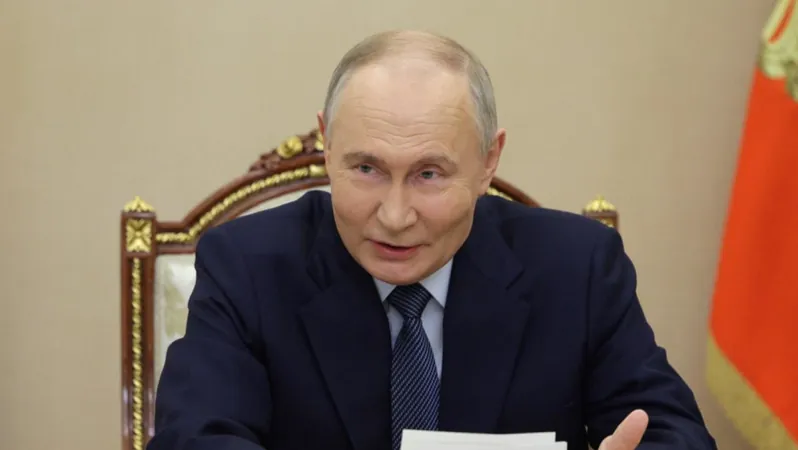
Tensions Escalate: Russia Threatens Retaliation After Ukraine Launches US-Made ATACMS Missiles
2024-11-26
Author: Sarah
MOSCOW
In a dramatic escalation of hostilities, Russia has declared its intent to retaliate following Ukraine's recent strikes on Russian military installations using advanced US-supplied ATACMS missiles. This development comes on the heels of President Vladimir Putin's stern warnings to Kyiv and Western nations against further missile assaults.
Both Ukraine and Russia have intensified their deadly aerial exchanges, increasingly employing sophisticated weaponry, raising alarms about a potential exacerbation of the ongoing conflict. Ukraine began its offensive last week with US-made ATACMS after receiving permission from Washington, prompting the Kremlin to respond with its newly developed hypersonic missile, which targeted the Ukrainian city of Dnipro.
According to Russia's defense ministry, the recent ATACMS strikes occurred on November 23 and 25, aiming at military bases and airfields in the western Kursk region, causing significant infrastructure damage. "Retaliatory actions are being prepared," stated the ministry on Telegram, though specific details remain undisclosed.
In retaliation, Russian forces executed a record-breaking assault deploying 188 drones overnight, which disrupted energy supplies across eastern Ukraine. In a notable admission, the Russian ministry revealed that Ukraine's strikes resulted in injuries to two servicemen at the Kursk Vostochny air base, marking one of the rare instances of public acknowledgment of casualties.
The Russian Defense Ministry further reported that a radar system was damaged during the strikes, and several missiles were intercepted, demonstrating the ongoing intense military exchanges. Notably, Putin hinted at the potential nuclear capabilities of the new Oreshnik hypersonic missile, asserting that Russia could unleash further military might in response to Western actions.
Amidst heightened tensions, ambassadors from Ukraine and NATO member states gathered in Brussels to address the implications of Russia's missile activities. Ukrainian President Volodymyr Zelenskyy commented on the attacks, attributing them to Russia's ability to circumvent international sanctions, and called for a more coordinated response from Western allies to compel Russia to halt its aggressive actions.
Residents in Kyiv reported hearing explosions during the drone attacks, with authorities in the Ternopil region confirming that essential infrastructure had been compromised, leading to disruptions in electricity supply as engineers worked diligently to restore stability.
Diplomatic discussions at NATO are anticipated but likely to yield limited outcomes, primarily reiterating the alliance's commitment to supporting Ukraine despite Russian aggression. Critics highlight the strained situation, as Ukraine's troops face challenges in countering Russian advancements in eastern territories.
In recent battlefield updates, Russian forces claimed to have captured the village of Kopanky near Kupiansk, igniting further concerns regarding sustained fighting, as the front lines show signs of volatility.
As developments unfold, the international community watches closely, aware that the risk of a wider conflict looms large with each calculated strike and military maneuver. What will be the next move in this high-stakes game of geopolitical chess? Keep an eye out for updates as this situation continues to evolve.

 Brasil (PT)
Brasil (PT)
 Canada (EN)
Canada (EN)
 Chile (ES)
Chile (ES)
 España (ES)
España (ES)
 France (FR)
France (FR)
 Hong Kong (EN)
Hong Kong (EN)
 Italia (IT)
Italia (IT)
 日本 (JA)
日本 (JA)
 Magyarország (HU)
Magyarország (HU)
 Norge (NO)
Norge (NO)
 Polska (PL)
Polska (PL)
 Schweiz (DE)
Schweiz (DE)
 Singapore (EN)
Singapore (EN)
 Sverige (SV)
Sverige (SV)
 Suomi (FI)
Suomi (FI)
 Türkiye (TR)
Türkiye (TR)